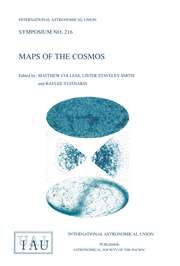No CrossRef data available.
Article contents
Time-Dependent Effects in Planetary Nebulae Caused by Thermal Pulses in Central Stars
Published online by Cambridge University Press: 22 September 2016
Extract
Nuclei of planetary nebulae are suspected to go through thermal pulses. A time scale of such pulses is of the order of 10–103 years and so it is comparable with the time of recombination in a typical planetary nebula. Theoretical models have been constructed to study evolution of ionization structure of nebulae in which the spectrum of ionizing radiation varies with time. Resulting intensities of emission lines are compared with those produced by stationary model nebulae.
- Type
- Session IV: The Central Stars of Planetary Nebulae
- Information
- Copyright
- Copyright © Reidel 1978




